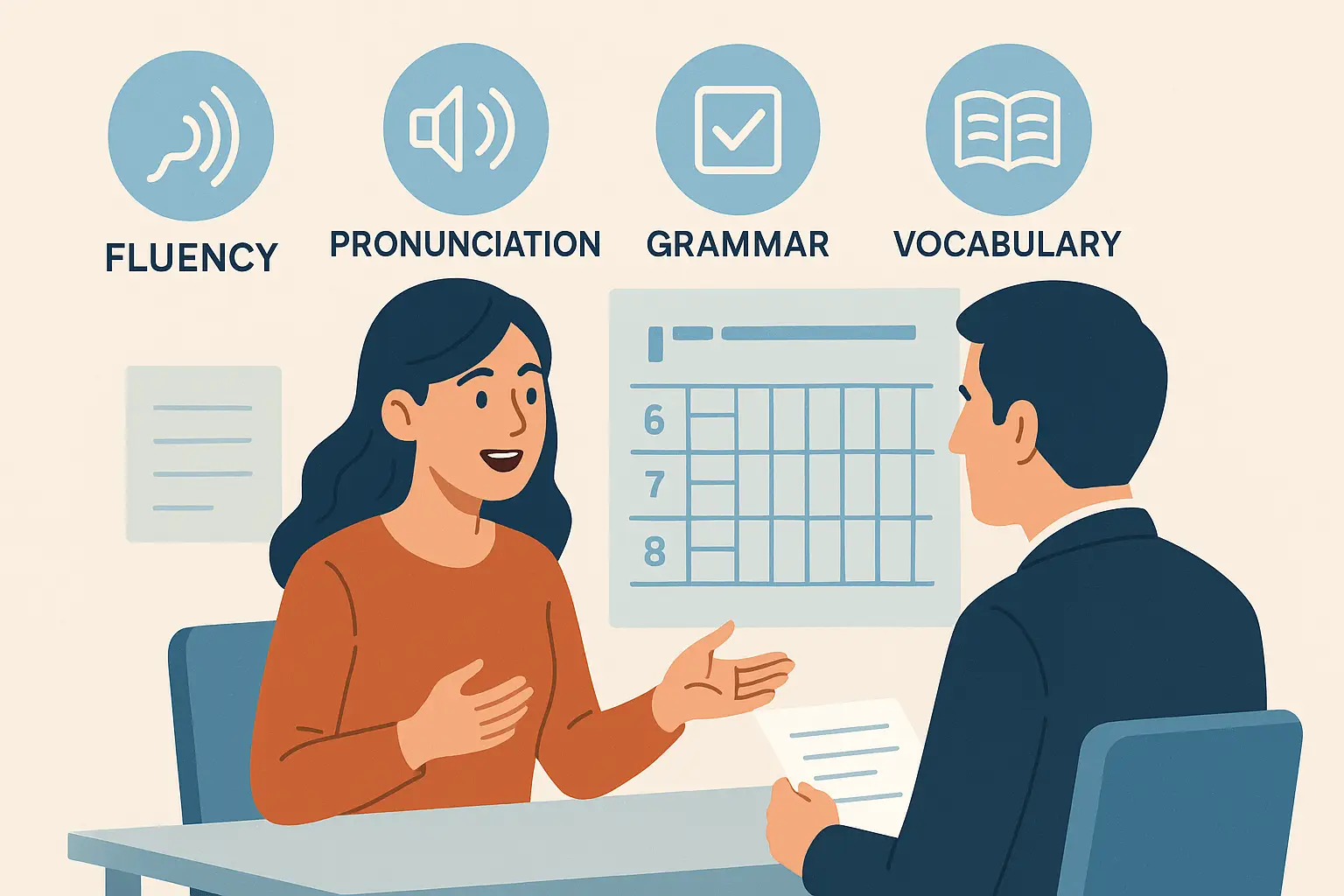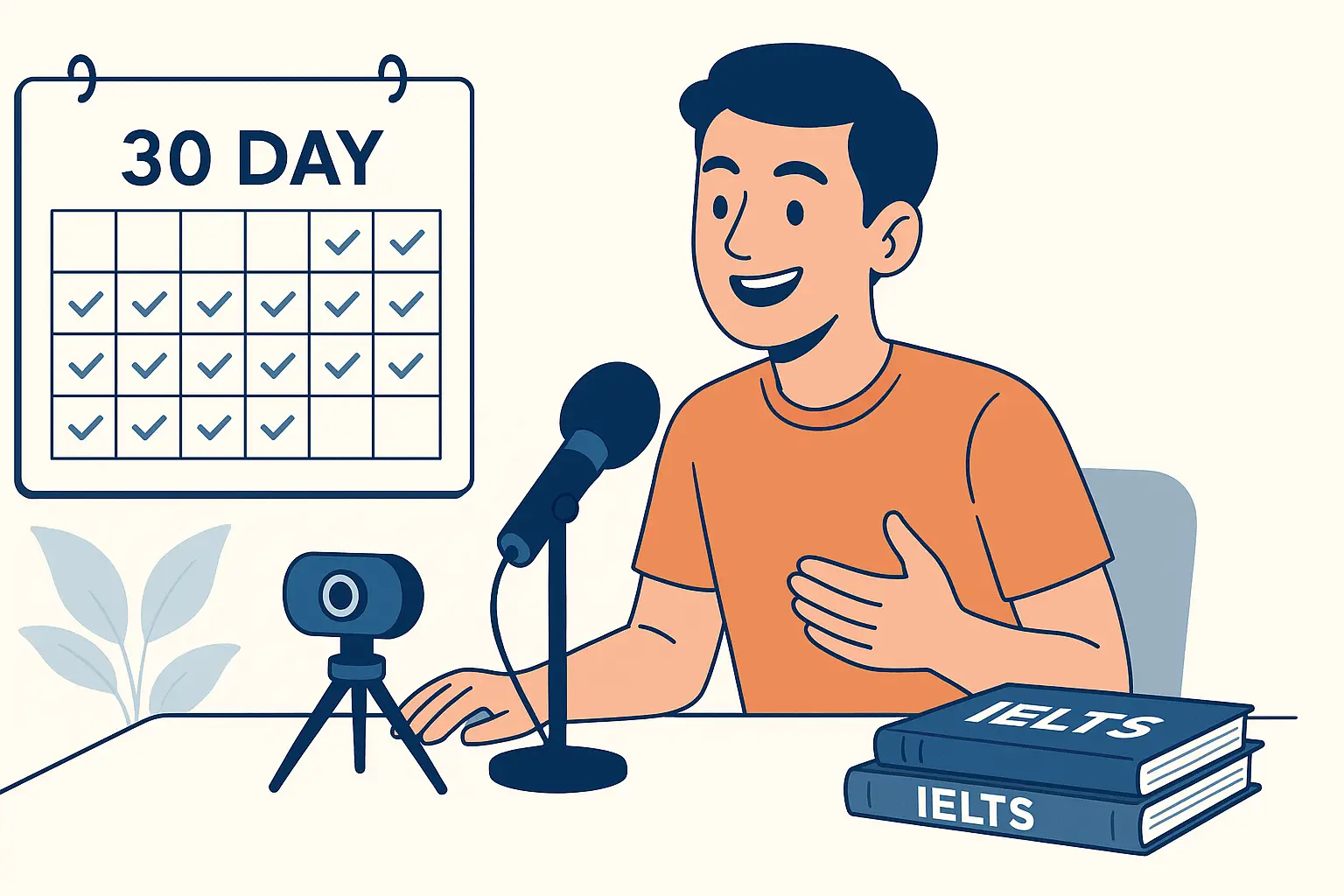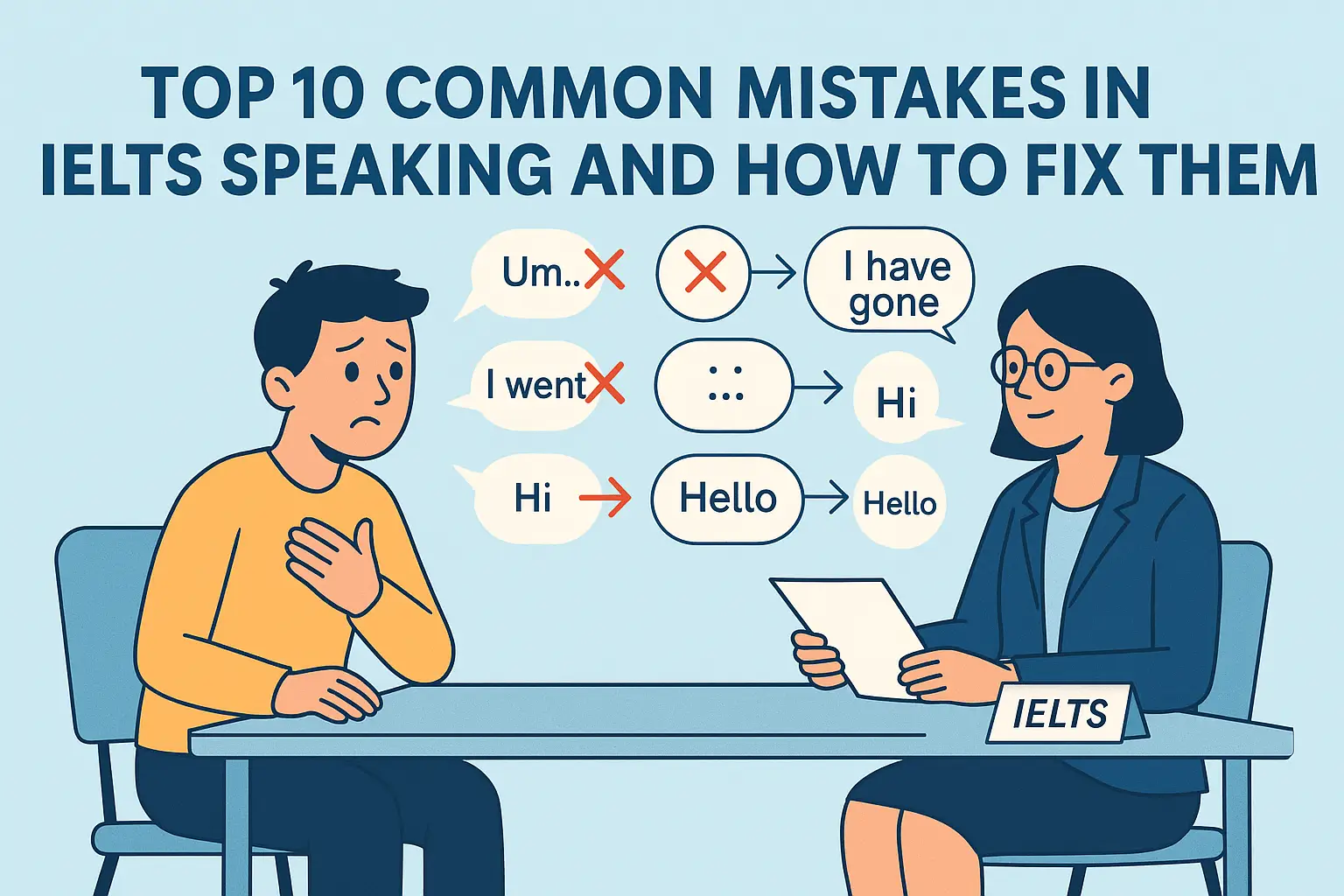As an international IELTS teacher who’s worked with students from over 20 countries, I’ve noticed one consistent problem: many learners don’t fully understand the IELTS Speaking Band Descriptors, and that confusion often costs them valuable marks. If you’ve ever wondered why you got a Band 6 instead of a Band 7—even when you thought you spoke well—this post is for you.
Why Understanding the IELTS Speaking Criteria Changes Everything
Before I dive into each descriptor, let me tell you about a student of mine, Maria from Spain. She was fluent and confident but kept getting stuck at Band 6.5. Once I explained the IELTS Speaking Band Descriptors and helped her tailor her practice around them, she finally hit Band 7.5. Her grammar didn’t change overnight—but her awareness and strategy did.
Whether you’re taking the test through British Council, IDP, or learning about the format from the official IELTS site, the speaking test is scored the same way.
There are four key IELTS Speaking Band Descriptors:
Fluency and Coherence: Can You Keep Talking Smoothly?
This refers to your ability to speak without long pauses or self-correction and whether your ideas connect logically. Many students confuse speed with fluency. But speaking too fast without clear connections hurts your coherence.
I often tell my students: fluency is like dancing—you can move smoothly even at a slow pace. Use linking phrases like “In my opinion,” “That being said,” or “To add to that…” to show structure.
🛠 Maria improved here by practising timed responses using cue cards and learning to extend her answers with reasons and examples.
Lexical Resource: Do You Use a Wide Range of Vocabulary?
Lexical resource is more than just “fancy words.” It’s about using topic-specific vocabulary and expressing subtle meanings effectively. For example, if asked about technology, you could say “social media platforms” instead of just “Facebook.”
Many of my students hit a vocabulary wall at Band 6. Reaching Band 7+ means learning collocations (like “strong argument,” “make a decision”) and paraphrasing naturally—skills I actively teach in my Speaking Guide.
Grammatical Range and Accuracy: Are Your Sentences Varied and Correct?
Here’s where most learners struggle. It’s not just about avoiding mistakes—it’s also about showcasing a variety of sentence structures. You need to balance simple, compound, and complex sentences.
📌 One of my students, Jaemin from South Korea, got stuck using only basic sentence patterns. Once we added conditionals, relative clauses, and passive voice into his responses, he moved from Band 6 to 7.
Pro tip: Accuracy first, range second. Don’t overcomplicate if you’re unsure—clear and correct always wins over complex and clumsy.
4. Pronunciation: Are You Clear and Natural?
This doesn’t mean having a “British” or “American” accent. Examiners listen for clarity, stress, intonation, and rhythm. If I can understand every word you say and you sound natural, you’re already on your way to Band 7+.
Pronunciation was Maria’s weak point. She tended to speak in a flat tone. I helped her by recording her answers and marking where to rise and fall in pitch—especially for contrast and emphasis.
🎧 Try shadowing podcasts or model answers and mimicking their rhythm. It works wonders.
Common Misconceptions I Hear Every Week
🧠 “If I speak fast, I’ll sound fluent.”
✖️ Nope. Fluency = smooth and connected, not rapid-fire delivery.
🧠 “Vocabulary means using big words.”
✖️ It means using the right words for the right topic, naturally.
🧠 “Grammar means no mistakes.”
✖️ Examiners expect some errors. But they want to see variety, accuracy, and flexibility.
You can read more about IELTS practice strategies and common mistakes here to ensure you’re not falling into these traps.
How Are You Really Scored?
Each IELTS Speaking Band Descriptor is scored from 0 to 9. You’re rated on all four areas equally, and then your final speaking score is the average of those four scores, rounded to the nearest 0.5.
Here’s what it might look like:
- Fluency and Coherence – 7
- Lexical Resource – 6
- Grammatical Range and Accuracy – 6
- Pronunciation – 7
👉 Overall Speaking Band: 6.5
Final Thoughts: Your Descriptors Are Your Roadmap
Once you understand the IELTS Speaking Band Descriptors, you’re no longer guessing. You have a clear roadmap of what examiners look for and how to target your preparation. This is exactly what helped my students raise their scores—and it can help you too.
If you’re just getting started, I recommend reading my complete IELTS Speaking Guide to see how these band descriptors apply across all three parts of the test.
FAQ: IELTS Speaking Band Descriptors
Q1. Do I need a British or American accent to get Band 9?
No. Clear pronunciation with proper intonation and rhythm matters more than accent.
Q2. Can I use idioms in the IELTS Speaking test?
Yes, but naturally and appropriately. Overusing idioms can sound forced and unnatural.
Q3. Will a few grammar mistakes lower my score?
Not necessarily. What matters is overall grammatical range and control. A few errors are acceptable at Band 7+.
Q4. What’s more important—fluency or vocabulary?
They’re weighted equally. You need balance. Don’t neglect any one descriptor.
Q5. Can I improve my score in just 2 weeks?
Yes—if you focus on the descriptors, target your weak areas, and practise smartly, not just more.
Let me know in the comments: which band descriptor do you find most difficult? I’d love to help you improve it.
Keep learning and keep growing. You’ve got this.





4 Responses
My brother suggested I would possibly like this website.
He used to be totally right. This put up truly made my day.
You cann’t believe just how much time I had spent for this information! Thanks!
I think other site proprietors should take this site as an model, very clean and wonderful user genial style and design, let alone the content. You’re an expert in this topic!
I really appreciate this post. I’ve been looking all over for this! Thank goodness I found it on Bing. You have made my day! Thx again!